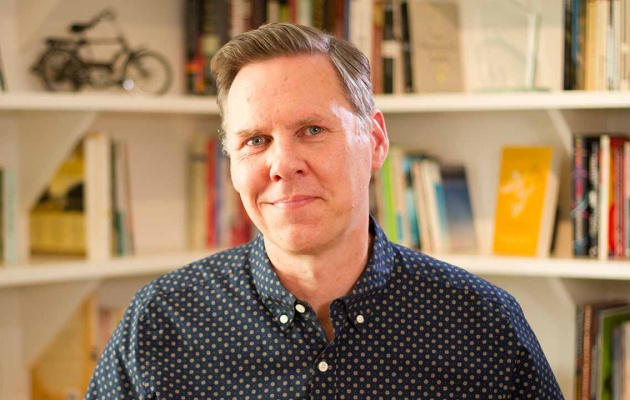In the book ‘Praying Through Infertility’, Sheridan Voysey collects the reflections of many who struggle with childlessness. “Infertility can raise significant questions about God’s care, power, and the efficacy of prayer”.
![The book Praying Through Infertility (2024). / Photo: [link]Sheridanvoysey.com[/link].](https://cms.evangelicalfocus.com/upload/imagenes/66714bf5cd0c2_9781400334513.lifestyle-shot.02-1200wCropped.jpg) The book Praying Through Infertility (2024). / Photo: [link]Sheridanvoysey.com[/link].
The book Praying Through Infertility (2024). / Photo: [link]Sheridanvoysey.com[/link].
Not being able to have children can lead to a deep personal crisis and put a relationship on the edge.
That is why Sheridan and Merryn Voysey, an Australian couple living in the UK, have publicly told their story and the comfort they have found in faith and in a “tribe” that has accompanied them in the process of accepting that their dream was not going to be fulfilled.
A communicator he and a scientist she, they believe in opening up honest, caring and refreshing conversations.
Sheridan Voysey explains in this interview with Evangelical Focus why he believes the book Praying Through Infertility (featuring 36 authors who have struggled with infertility in very different contexts) can be an appropriate tool for many struggling.

[photo_footer] Sheridan Voysey. [/photo_footer] Question. The reality of infertility appears often in the Bible, but do Christians going through it feel well talking about it to others in church contexts?
Answer. It depends. Merryn and I had a largely positive experience of support from our Christian brothers and sisters when we were walking through infertility. They listened to us, prayed with us, and gave us the space not to talk about it or even pray when talking and praying was too painful.
But we’ve heard from many others who haven’t had that experience, who’ve instead been preached to, scolded for lack of faith, and worse.
Just a week ago I received an email from ‘Diane’ (name changed): “I couldn't talk to anyone at church about this,” she wrote. “No one would get it. And if they start pouring Bible verses on me, I can finish their sentences before them because I’ve studied all the Bible’s stories about barren women through and through.”
Q. Is there sometimes a misuse of the Bible when trying to address the issue of childlessness?
A. As Christians we may think we’re helping a childless person by pointing them to the miraculous conception stories in scripture, like those of Hannah and Elizabeth, suggesting that with just the right faith or attitude, their miracle child will come too.
[destacate]“We’ve heard from many who’ve instead been preached to, scolded for lack of faith, and worse” [/destacate]But scripture’s miracle baby stories are normally about an important character entering the biblical narrative—people like Sammuel and John the Baptist—and shouldn’t be read as general spiritual strategies for curing infertility. A far better approach is to help carry the couple’s burdens with them (Galatians 6:2), by listening, prayer, presence, and practical support.
Q. Praying Through Infertility is for readers who go through difficult personal moments, in times when “a giggling child brings not delight but grief”, as you describe it. What are all the authors brought together for this devotional project hoping to offer?
A. The aim is simple—to help readers stay close to God and each other while they walk the rocky path of infertility. Anyone who’s experienced it knows that infertility, especially when long-term, can raise significant questions about God’s care, power, and the efficacy of prayer.
I wanted Praying Through Infertility to serve these readers with writing that was beautiful, biblical, empathetic and hopeful. I’m thrilled to say I truly believe the book possesses all these qualities and more.
Q. So you’re not talking about a miracle to many who probably are hoping to see one, but “accompaniment through the long dark night”. Why is this approach needed?
It’s a real risk opening up to someone about it because infertility is a unique experience, and those who haven’t faced it can struggle to empathise.
[destacate]“Since infertility isn’t a typical topic of conversation, it can take years for a couple to meet others who’ve experienced it” [/destacate]“This is the most isolating experience I’ve ever had,” Diane told me in her email, “the loneliest fight I've ever fought.” We wanted Praying Through Infertility to provide people like Diane with a ‘tribe’ of support around them, so they knew they’re weren’t alone—that others have walked this path (or are still walking it) and have some important wisdom to share. I think ‘accompaniment’ is the best word for this kind of support.
Q. Is there anything else you think is important to bring to the table?
A. Studies have shown that infertility can be a profoundly negative experience for a man, impacting their self-esteem, masculinity, even their careers, and yet they are often ignored during the medical and treatment process.
And so, I’m thrilled that we have so many male contributors to Praying Through Infertility, men who speak with honesty, vulnerability, and humble hard-won faith, bringing encouragement that truly resonates. I’m also thrilled we’ve been able to make this a truly multi-cultural endeavour, with 36 contributors from a dozen different ethnicities, and a variety of different outcomes to their infertility journeys, bringing a rich variety of experiences and insights.
Ultimately, my prayer is that a person or couple discovers that, no, they are not alone in this experience called infertility. A tribe of fellow journeyers exists, and God Himself is walking by their side.
Praying Through Infertility (Thomas Nelson, 2024) is available on several platforms.
[analysis]
[title]One more year[/title]
[photo][/photo]
[text]At Evangelical Focus, we have a sustainability challenge ahead. We invite you to join those across Europe and beyond who are committed with our mission. Together, we will ensure the continuity of Evangelical Focus and Protestante Digital (Spanish) in 2024.
Learn all about our #OneMoreYearEF campaign here (English).
[/text][/analysis]

Las opiniones vertidas por nuestros colaboradores se realizan a nivel personal, pudiendo coincidir o no con la postura de la dirección de Protestante Digital.
Si quieres comentar o